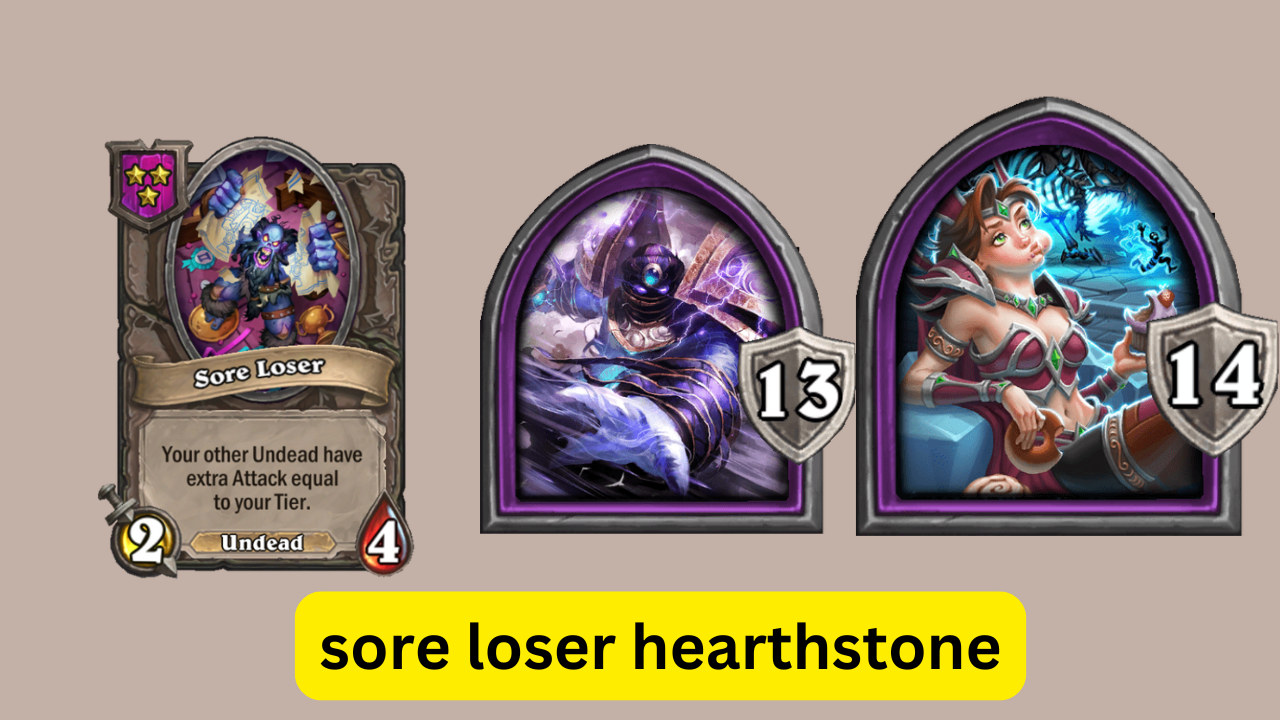In the world of Hearthstone, an online digital card game developed by Blizzard Entertainment, the term “sore loser” is often thrown around. But what does it mean to be a sore loser in this highly competitive environment? How can we, as players, overcome the challenges of defeat and turn losses into valuable learning experiences? This article delves into the psychology behind being a sore loser, offering strategies to cope with losses, and highlighting the importance of maintaining a positive mindset in Hearthstone.
The Sore Loser
In any competitive game, emotions run high. The term “sore loser” is used to describe someone who reacts poorly to losing. In Hearthstone, this might manifest as a player who becomes visibly upset, blames the game’s mechanics, or even accuses their opponent of cheating. While it’s natural to feel frustrated after a loss, it’s crucial to handle defeat with grace and sportsmanship.
A sore loser often experiences a heightened sense of frustration, which can lead to a negative gaming experience. This behavior not only affects the individual but can also impact the community, creating a toxic environment. Understanding why we might become sore losers is the first step in addressing the issue.
Why Do We Become Sore Losers?
Several factors contribute to why players might become sore losers in Hearthstone:
- Investment in the Game: The more invested we are in the game, the harder it is to accept losses. This is especially true for those who spend considerable time and money on building their decks.
- Perceived Injustice: When we believe that a loss is due to unfair circumstances—such as bad luck with card draws or an opponent’s overpowered deck—we’re more likely to react negatively.
- Ego and Self-Image: For many players, winning is tied to their self-esteem. A loss can feel like a personal failure, leading to defensive reactions.
- Competitive Nature: Hearthstone attracts competitive individuals who may struggle with accepting defeat, viewing it as a blow to their skills or strategy.
Being a Sore Loser
Being a sore loser doesn’t just affect the individual; it can have a broader impact on the gaming community. When players react poorly to losses, it can lead to:
- Toxicity in the Community: Negative behavior can spread, creating a hostile environment where players feel uncomfortable or unwelcome.
- Damage to Reputation: A player known for being a sore loser may find it difficult to form alliances or participate in tournaments, as others may avoid playing with them.
- Reduced Enjoyment of the Game: Constantly focusing on losses and reacting poorly can diminish the enjoyment of Hearthstone, turning what should be a fun and challenging experience into a source of stress.
Strategies to Overcome Being a Sore Loser
To move past being a sore loser, we need to adopt strategies that help us cope with losses constructively. Here are some techniques that can transform how we handle defeat in Hearthstone:
1. Shift Your Mindset
The first step in overcoming sore loser tendencies is to shift our mindset from one that focuses solely on winning to one that values learning. Every loss in Hearthstone is an opportunity to gain insights into our strategies, decks, and decision-making processes. By viewing losses as lessons, we can improve our gameplay over time.
2. Practice Mindfulness
Mindfulness involves being present in the moment and accepting our emotions without judgment. By practicing mindfulness, we can acknowledge our feelings of frustration or disappointment without letting them control our reactions. Techniques such as deep breathing, meditation, or even taking a short break after a match can help us regain our composure.
3. Focus on Improvement, Not Perfection
No one is perfect, and even the best Hearthstone players lose matches. Instead of striving for perfection, focus on continuous improvement. Analyze your losses to identify areas where you can improve, whether it’s adjusting your deck, refining your strategy, or learning from your opponent’s tactics.
4. Develop Resilience
Resilience is the ability to bounce back from setbacks. In Hearthstone, this means accepting that losses are a part of the game and that they don’t define our worth as players. Building resilience involves maintaining a positive attitude, setting realistic expectations, and not taking losses personally.
5. Engage with the Community Positively
Engaging positively with the Hearthstone community can help shift our focus from individual losses to the collective experience of the game. Participate in forums, watch streams, and share your experiences with other players. This can provide new perspectives and remind us that everyone experiences losses.
6. Set Realistic Goals
Setting realistic goals can help manage expectations and reduce the frustration associated with losing. Instead of aiming for an unattainable win rate, set goals that focus on improvement, such as mastering a new deck or reaching a specific rank. Achieving these goals can provide a sense of accomplishment, even in the face of losses.
The Importance of Sportsmanship in Hearthstone
Sportsmanship is crucial in maintaining a healthy and enjoyable gaming environment. As players, we have a responsibility to treat our opponents with respect, regardless of the outcome of the match. Good sportsmanship involves congratulating opponents on their victories, accepting losses gracefully, and avoiding negative comments or behavior.
By embodying sportsmanship, we contribute to a positive community atmosphere, making Hearthstone a more welcoming and enjoyable game for everyone. Furthermore, maintaining sportsmanship can enhance our own gaming experience by fostering a sense of camaraderie and mutual respect.
Conclusion
While losing is an inevitable part of playing Hearthstone, how we react to losses defines our experience in the game. By understanding the psychology behind being a sore loser and adopting strategies to handle defeat constructively, we can transform losses into opportunities for growth. Remember, every loss is a stepping stone to becoming a better player.
